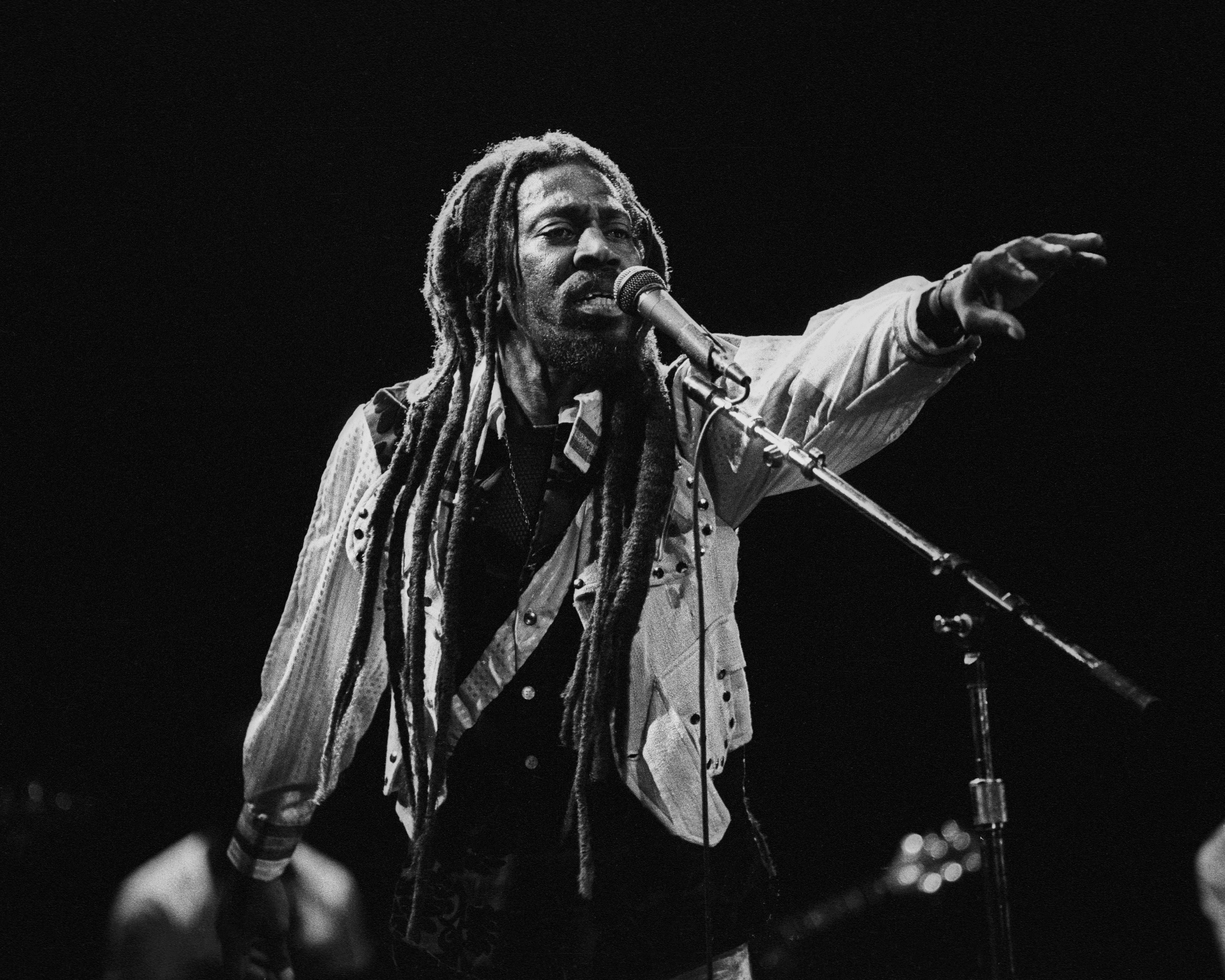Bunny Wailer: Giant of reggae music and founding member of The Wailers
With Bob Marley and Peter Tosh, the band became Jamaica’s most celebrated musical export

Your support helps us to tell the story
From reproductive rights to climate change to Big Tech, The Independent is on the ground when the story is developing. Whether it's investigating the financials of Elon Musk's pro-Trump PAC or producing our latest documentary, 'The A Word', which shines a light on the American women fighting for reproductive rights, we know how important it is to parse out the facts from the messaging.
At such a critical moment in US history, we need reporters on the ground. Your donation allows us to keep sending journalists to speak to both sides of the story.
The Independent is trusted by Americans across the entire political spectrum. And unlike many other quality news outlets, we choose not to lock Americans out of our reporting and analysis with paywalls. We believe quality journalism should be available to everyone, paid for by those who can afford it.
Your support makes all the difference.In 1963, Bunny Wailer formed a band with Bob Marley and Peter Tosh. With Wailer on harmony vocals and percussion, they became reggae music’s greatest exponents and Jamaica’s most celebrated musical export.
The group that would become The Wailers honed their vocal harmonies singing doo-wop. They recorded ska and rocksteady versions of American soul songs, and in February 1964 scored a Jamaican No 1 with their classic ska original “Simmer Down”. But it was with Rastafari-informed reggae music, a genre the group helped pioneer with alchemical producer Lee “Scratch” Perry on albums such as 1970’s Soul Rebels and 1971’s Soul Revolution, that The Wailers set the world alight.
Signing with Chris Blackwell’s Island Records in December 1971 opened up the UK and US markets. But Blackwell’s game plan for 1973’s Catch A Fire made Marley the focal point, and Wailer and Tosh felt marginalised. They soon left the band after a revered slot on The Old Grey Whistle Test; both men aggrieved when Blackwell refused to release Tosh’s solo album. Wailer also felt that working outside of Jamaica was compromising certain tenets of his Rastafarian faith.
Though exiting as worldwide fame beckoned might have sunk lesser spirits, Wailer had only just begun. His personal vision came to full fruition on his 1976 solo debut, Blackheart Man, a dazzling roots reggae record. Named after a fabled Jamaican bogeyman, it featured many of Jamaica’s most elite musicians. Wailer would always cite it as his best, most spiritually resonant work.
Born Neville O’Riley Livingston in Kingston in 1947, Wailer’s twin loves were music and cricket. He befriended Marley at school, and together with Tosh, they would gatecrash Kingston’s open-air dances.
Ties between them ran deep. After Marley’s father died in 1955, Wailer’s father moved in with and had a daughter with Marley’s mother. Tosh, meanwhile, would later have a son with Wailer’s sister.
Read more:
Wailer’s arrest for cannabis possession aged 20 would have a lasting, politicising effect. He spent part of his 18-month sentence at Kingston’s notoriously harsh General Penitentiary and this inspired Blackheart Man’s “Battering Down Sentence”.
Recognition for his work peaked in the 1990s. Wailer won the Grammy Award for Best Reggae Album three times. First for 1990’s Time Will Tell: A Tribute To Bob Marley, then for 1994’s Crucial! Roots Classics, and finally for 1995’s Hall of Fame: A Tribute to Bob Marley’s 50th Anniversary.
A Mojo review of a 1996 show in London’s Finsbury Park remarked upon Bunny’s silver-sequinned jumpsuit and “kung-fu leaps that defied age and gravity”, but he still had a fear of flying, and spent much of his time growing coffee and corn on land near Kingston he had purchased with a cash settlement from Island Records.
His iconic status as the last surviving member of The Wailers gained more weight with each passing decade. In 2017, Kingston opened the Bunny Wailer Museum. He was awarded the Jamaican Order Of Merit that same year.
In later years, Wailer was used to carrying the band’s proud legacy alone. Marley died of cancer in 1981 aged 36, and Tosh was shot dead at his home in Kingston, Jamaica, in 1987 aged 42. Wailer died on 2 March aged 73 after complications arising from two strokes he suffered in recent years.
Wailer’s manager Maxine Stowe was with him when he died at Kingston’s Medical Associates Hospital, and told the Jamaica Observer he is survived by 13 children, 10 sisters, three brothers and grandchildren. Stowe also said that Jean Watt, Wailer’s partner of 50 years and a dementia sufferer, had been missing since last May.
“Bunny Wailer will always be remembered for his sterling contribution to Jamaica’s culture,” Andrew Holness, the Jamaican prime minister, wrote in a tweet.
Ziggy Marley, son of Bob Marley, said: “His legacy, music and spirit will never die.”
Bunny Wailer, singer and percussionist, born 10 April 1947, died 2 March 2021
Join our commenting forum
Join thought-provoking conversations, follow other Independent readers and see their replies
Comments